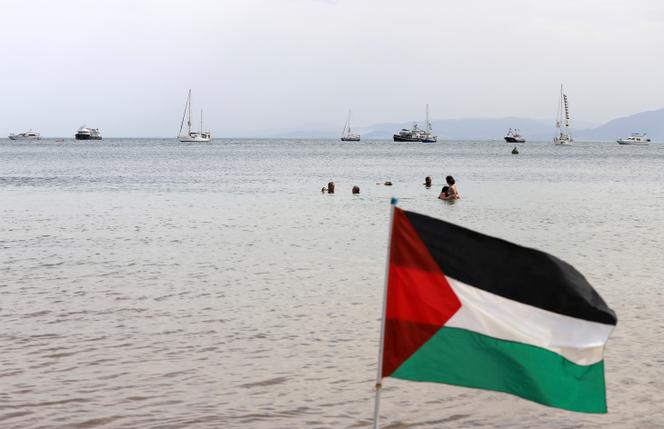


The Tunisian authorities' denial of the attack, on the night of Monday, September 8, to Tuesday, September 9, on a boat belonging to the international pro-Palestinian flotilla anchored off Sidi Bou Said, near Tunis, is commensurate with the diplomatic embarrassment that seems to have paralyzed President Kais Saied. The national guard immediately denied any "hostile act or external attack," even suggesting that a "cigarette butt" had "set fire to life jackets." Meanwhile, the Global Sumud Flotilla activists, who planned to "break Israel's illegal siege" and bring humanitarian aid to Gaza, were adamant: The targeted boat had been struck by "a drone," as confirmed by witnesses on board and video footage that showed a falling explosive device. According to the flotilla's organizers, a second "suspected drone attack" occurred on Tuesday night, under similar circumstances.
The official reaction echoed what Hamza Meddeb, a researcher at the Carnegie Middle East Center, described as a "historical reflex of authoritarian regimes" in Tunisia, which strive to "explain, at every security incident, that the country is under control." He added: "The message is: 'Move along, nothing to see here.'" In this particular case, however, the authorities' passivity stood in stark contrast to President Saied's sovereigntist posturing, steeped in the school of Arab nationalism from which he hails.
You have 69.86% of this article left to read. The rest is for subscribers only.
